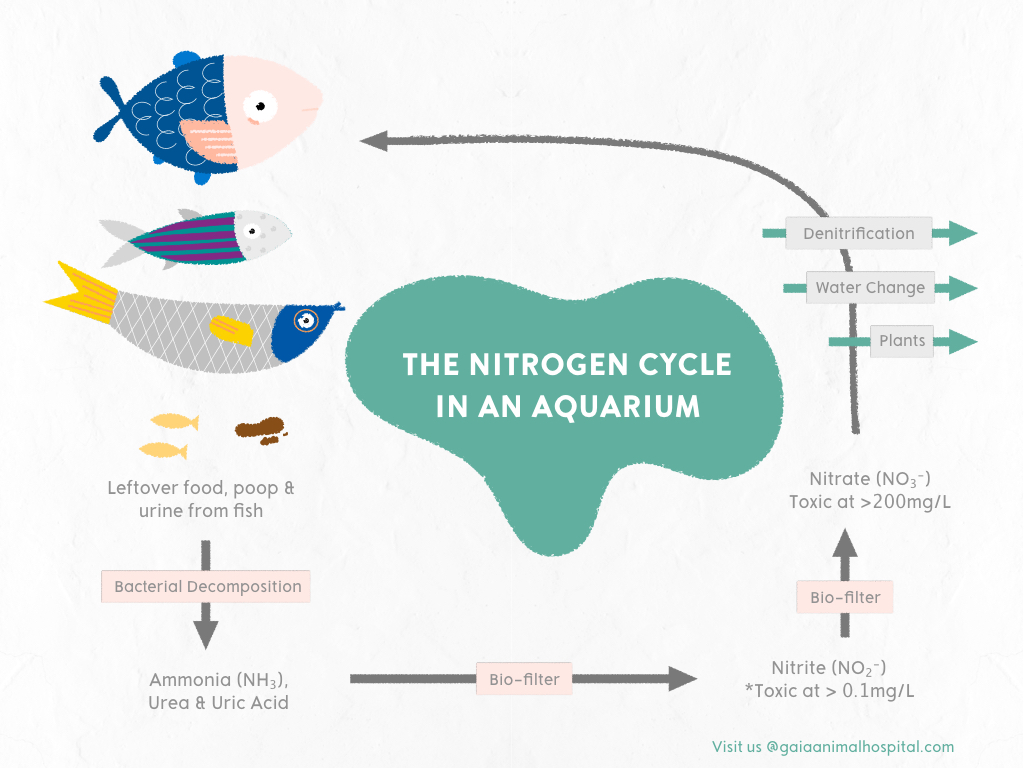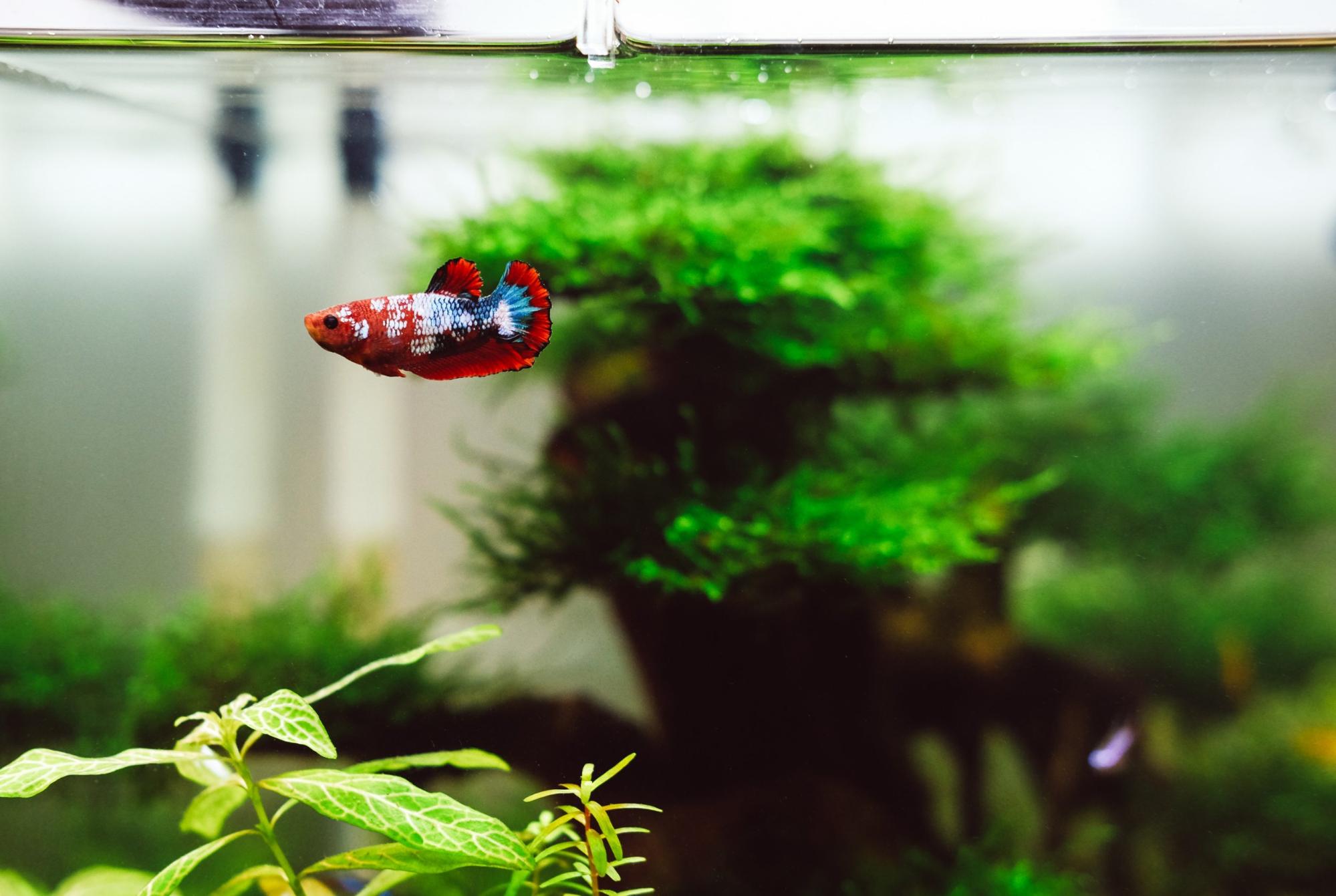Fish Keeping 101: Water Quality & Nitrogen Cycle
Article - 3 min read • Updated Nov 01, 2023
Medically reviewed by Dr. Arman Chen, BVSc (Qld.), BSc (Leic.)

Maintaining good water quality means healthy fish (and terrapin)! Everything from uneaten food to poop stays in the water. Then, these by-products rot and accumulate producing toxic waste (ammonia, nitrites and nitrates) that can make your fish sick.

As you can see, these toxic contaminants can be filtered out through several ways. Depending on your tank load (number of fishes), size and type of fish, you can choose one method or a combination of ways to filter/clean the water.
- Mechanical Filtration
- Biological Filtration (Plants & Good Bacteria)
- Water Change
Ammonia, nitrites and nitrates are all bad when they accumulate. But nitrites are more toxic than nitrates. More than 0.1mg/litre of nitrates is enough to kill your fish while nitrates need to reach up to 200mg/litre before causing health problems for your fish.
1. Mechanical Filtration
These filters e.g. wool trap large uneaten food and poop. Changing the wool regularly removes these larger fish by-products and helps to reduce ammonia buildup in the water. Using a simple gravel pump to suck up large visible by-products also helps.
2. Biological Filtration
Plants use nitrates (harmful to fish) to grow and build proteins for themselves. Removing nitrates in the water cleans it up. Some great water plants you can buy locally to reduce nitrates in your tank include water sprite, duckweed, frogbit etc.
Good bacteria reduces ammonia and nitrites in the water (denitrification) by converting them into nitrates (the lesser evil). How to build up good bacteria? Get bio-filter media. They have a large surface area and house these bacteria, to let them accumulate and grow. Flowing the water through these media allows these good bacteria to capture toxic contaminants and clean it up.
3. Water Change
Time-consuming but effective, changing water is also a good way to remove these toxic waste. But be careful not to change too much water each time. A good amount and frequency is changing up to 30% of water per week.
We encourage using all the methods above to keep your water clean and your fish happy and healthy. Even for fish which are hardier than most, e.g. fighting or betta fish, commonly found in our local fish shops. Their welfare and living conditions are often overlooked.

As always, if you need more advice, talk to our exotics vet (or resident afish-cionado) at Gaia Veterinary Centre. Call us at 6950 4533 (Jalan Besar) or 6727 7511 (Parksuites, Holland Grove Rd).
RELATED ARTICLES